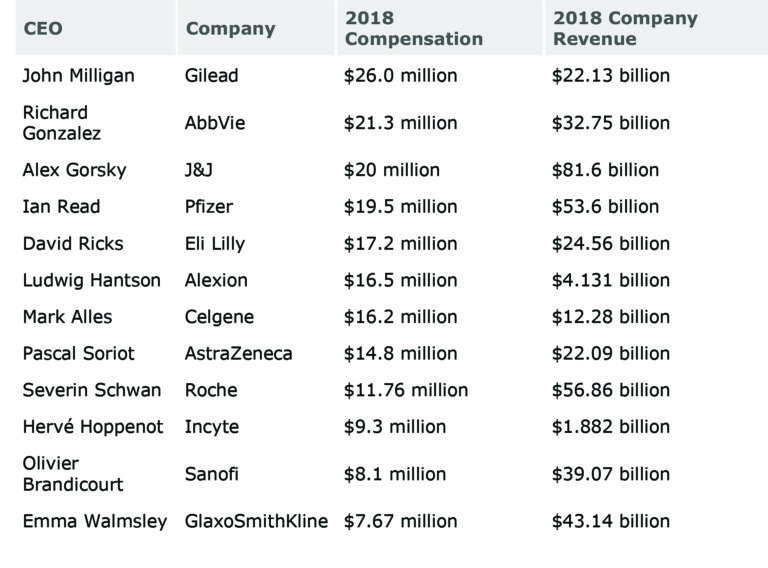
Posted by DeeDee DeMan – After a year at the helm of GlaxoSmithKline, CEO Emma Walmsley earned a $1.3 million bump in pay in 2018, mostly due to pay for performance. The jump takes her to $7.67 million and makes her the highest-paid woman on the FTSE 100. During her short tenure in the corner office, Walmsley racked up a long list of achievements, including strengthening the pipeline, focusing on a diversity target of 33 percent women in upper echelons in the consumer healthcare industry, and presiding over the acquisition of Tesaro and the collaboration with 23andMe. That’s the good news.
Looking a little deeper at the revenues of 12 of the top big pharma companies and the pay structure of their CEOs, the pay inequity situation becomes clear (see chart below). Walmsley, the only woman on the list, is the lowest-paid big pharma CEO. And this is hardly a case of CEO pay matching company performance. GSK’s revenue is $43.14 billion, the fourth highest on the list.
Now compare this with John Milligan, at Gilead, who earns $26 million in compensation, while his company revenue sits at $22.13 billion. GSK’s revenue is nearly twice that of Gilead, and yet Walmsley makes three times less than Milligan.
Pay for performance? Hardly.






